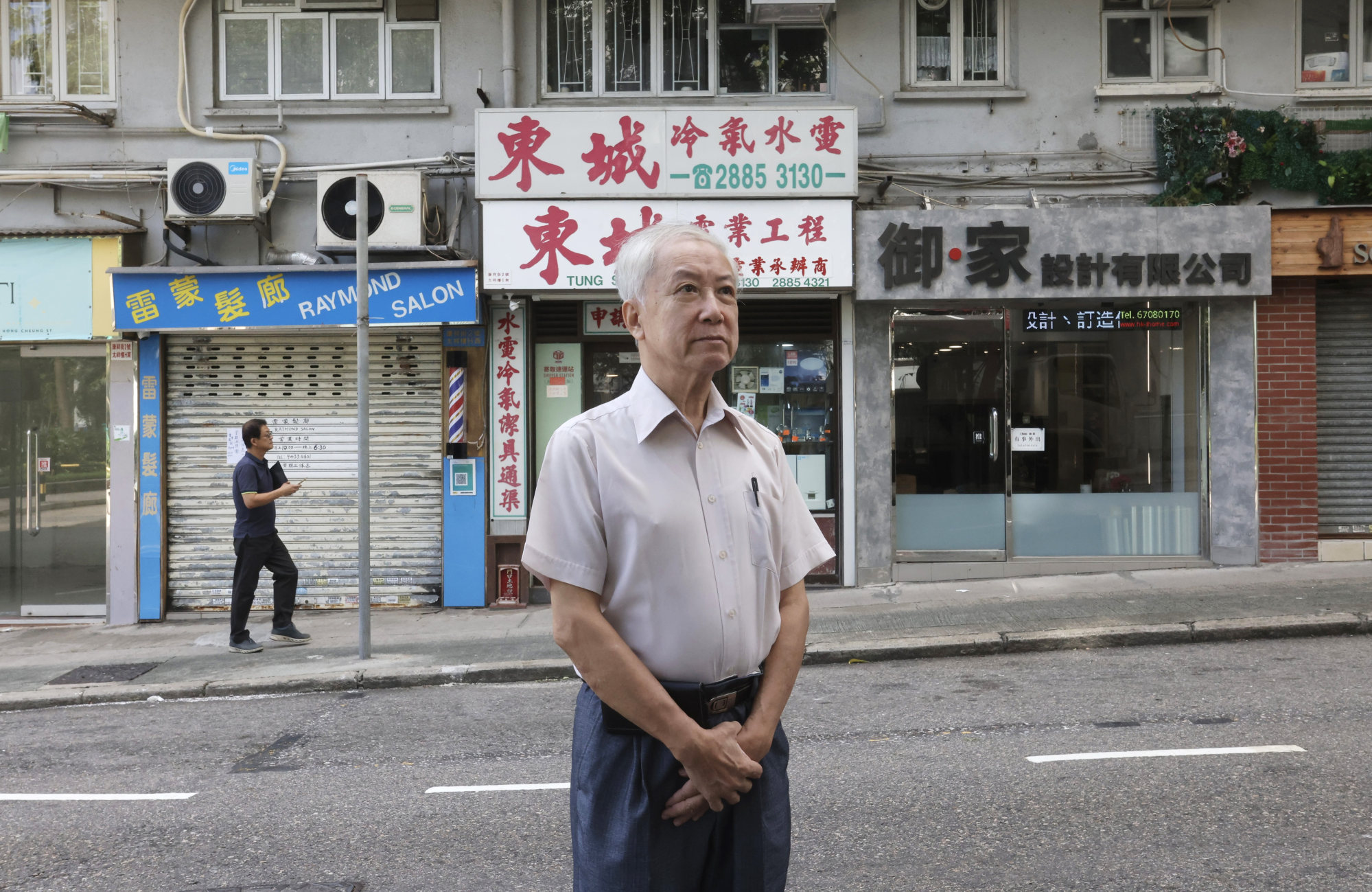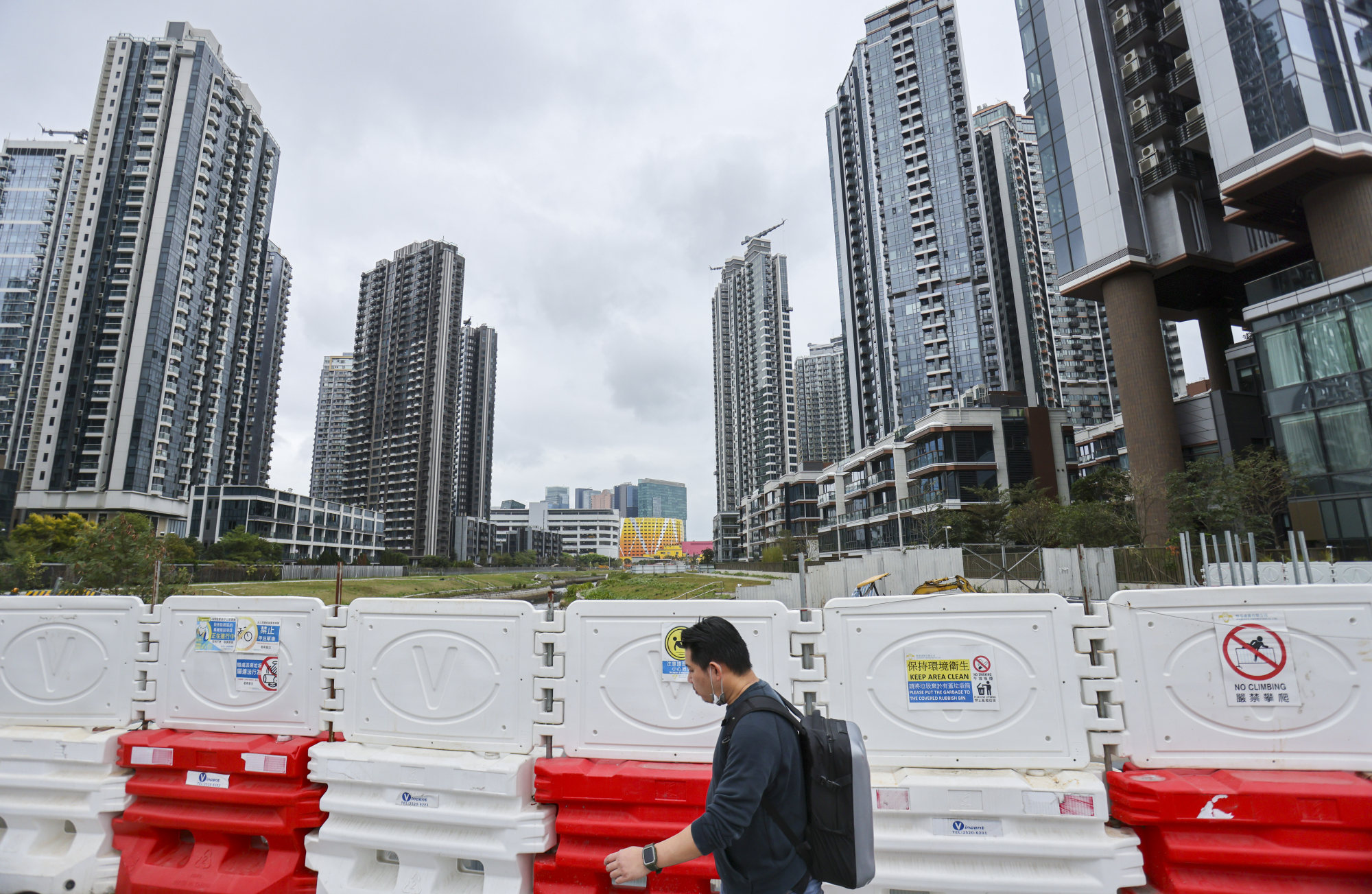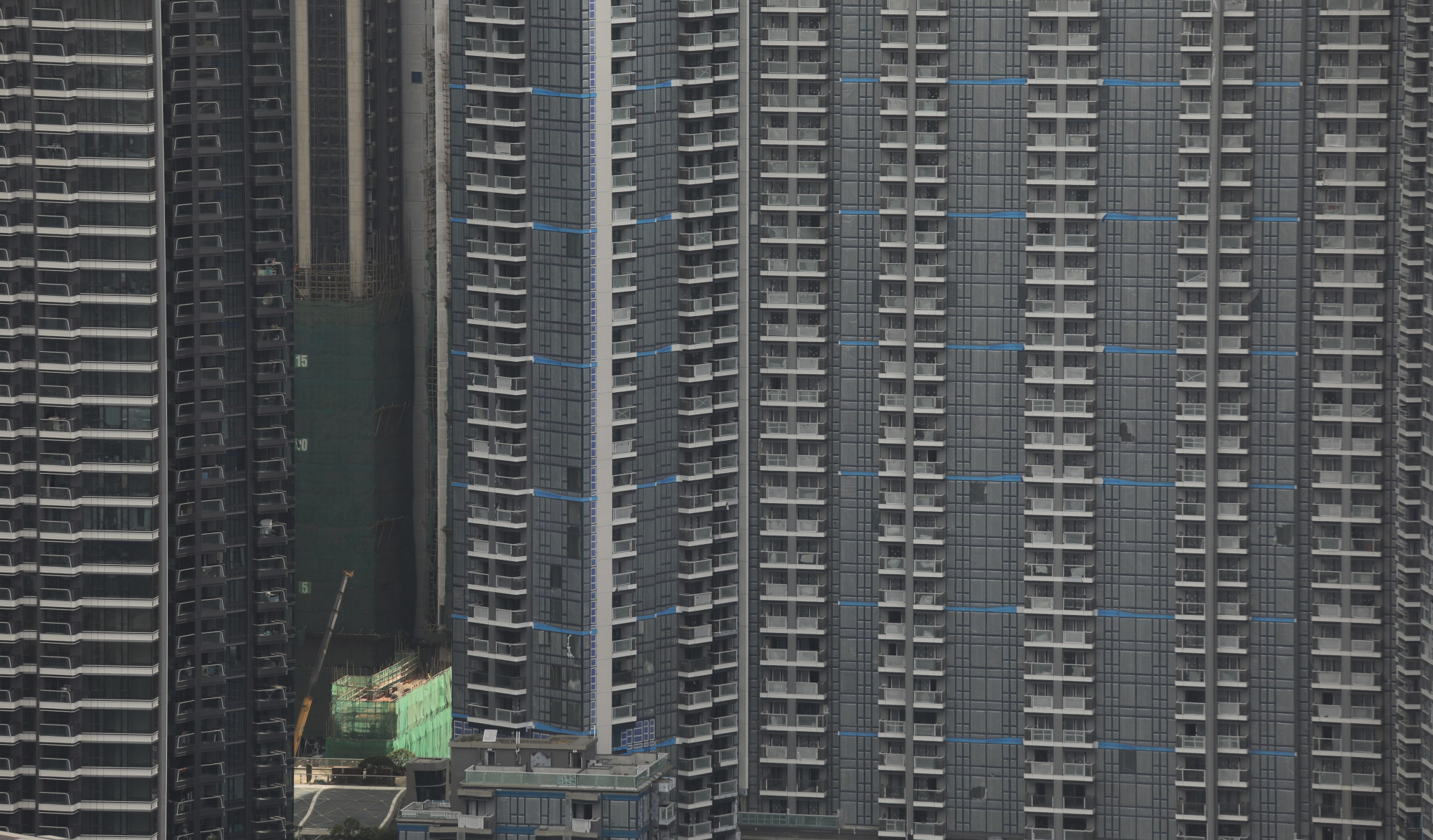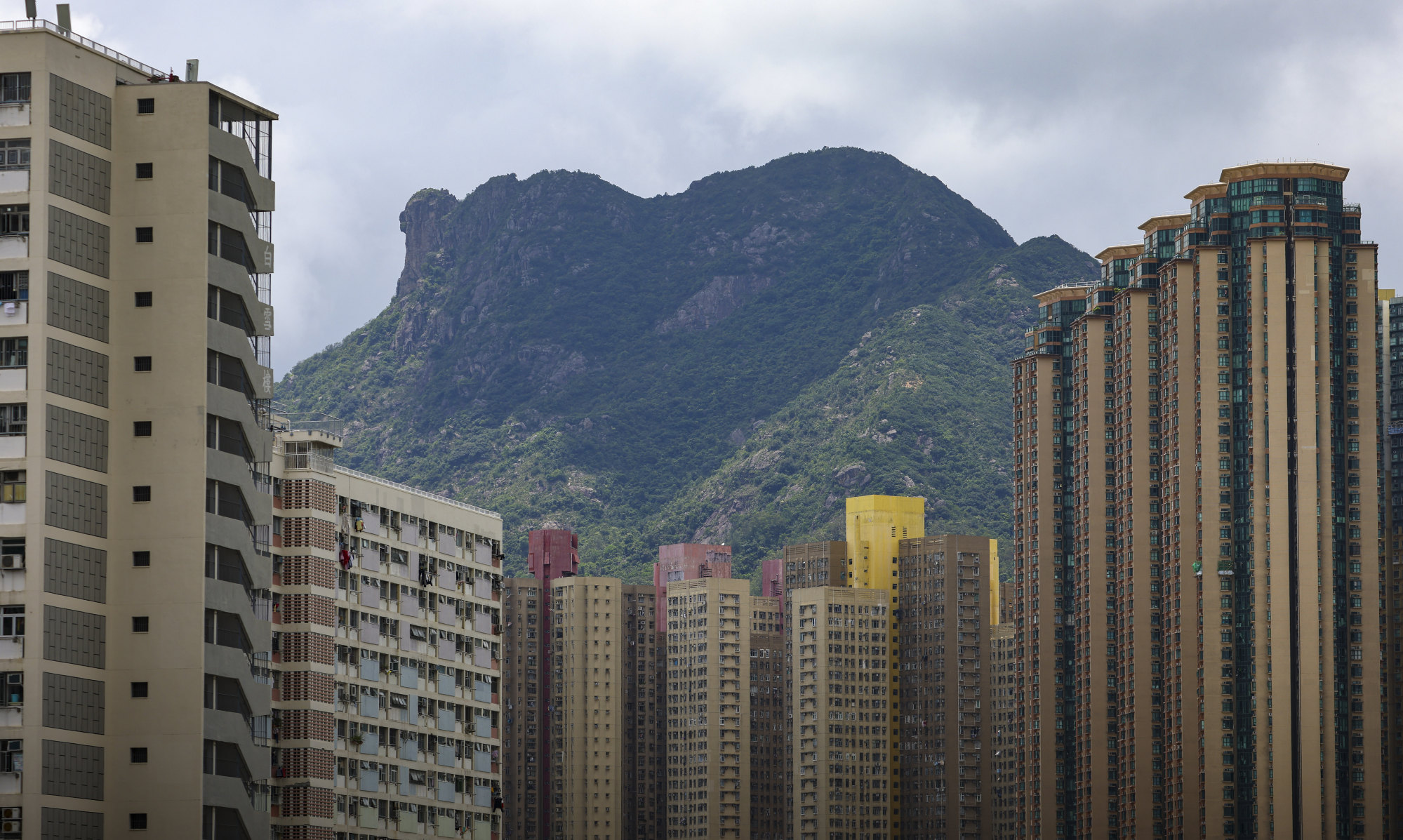Now in his seventies, Ng bought and sold 200 flats over the years and is holding on to fewer than 20. He was delighted when Financial Secretary Paul Chan Mo-po hinted last month that the city might ease its property cooling measures soon.

“It will help even if the government lowers the rate to 10 or 5 per cent,” he said.
Experts told the Post changing the current rules would boost Hong Kong’s economy, move developers to bid for government land parcels and possibly encourage foreign talent to put down roots in the city.
But they also cautioned that the government had to monitor the impact on local homebuyers if property prices rose, saying it would help if mortgage rules were relaxed to enable people to afford a home.
Hong Kong should cut stamp duty for residents buying another flat, DAB says
Hong Kong should cut stamp duty for residents buying another flat, DAB says
Hong Kong introduced a range of property cooling measures in stages since 2010 to discourage speculators.
Those who sell a property within three years of buying it must pay stamp duty equivalent to 10 to 20 per cent of the selling price. The sooner they resell, the more they must pay.
Non-first-time buyers have to pay 15 per cent of the purchase price, while non-locals or companies pay a total of 30 per cent of the purchase price.
Given Hong Kong’s high property prices and tight housing supply, the government has repeatedly rejected calls over the years to lift the restrictions.
Then finance minister Chan signalled change, ahead of Chief Executive John Lee Ka-chiu’s second policy address on October 25.
Chan noted the property market had been stable, unlike 13 years ago when the government began introducing restrictions to curb speculators and investors at a time when the supply of flats was limited.
Chan remarked that different measures served their own purposes and the government would adopt a pragmatic attitude as it continued reviewing the policies.
He spoke after the prices of lived-in homes had fallen for four months in a row as of August.

Property industry leaders immediately called for the cooling measures to be relaxed or scrapped, saying that would save the market.
Official data showed that property prices fell by around 15 per cent through last year, and went up by about just 1 per cent this year, up to August.
Professor Terence Chong Tai-leung, executive director of Chinese University’s Lau Chor Tak Institute of Global Economics and Finance, said it was the right time to lift the restrictions.
Hong Kong finance chief hints decade-old property curbs have had their day
Hong Kong finance chief hints decade-old property curbs have had their day
“We don’t need property curbs any more. The basis of these measures is to avoid property prices soaring but now the property market is on a decline,” he said. “Relaxing these curbs can stimulate some demand from investors.”
He noted that annual residential property transactions went down by about two-fifths from 81,333 in 2012 to 50,676 in 2013 after the government made non-first-time buyers pay extra stamp duty, after already imposing it on non-local and short-term buyers.
Last year there were only 45,050 transactions, the lowest in a decade.
Chong said Hong Kong was no longer under pressure to adhere to the national no-speculation policy as mainland Chinese cities had lifted their curbs one after the other to stop the market slump, even allowing non-locals to buy flats in prime areas.
Easing property curbs could be a first step by the Hong Kong government to improve market sentiment, he said, as rate hikes and the global economic situation were beyond its control.
A better market outlook could also encourage developers to bid for land and secure income for the government, he added.
Of the 18 land parcels slated for sale during the current financial year, only two have been sold for a total of HK$7.07 billion (US$903.2 million) so far. One went at a per square foot price that was the lowest in 21 years for the area.

The government cancelled a tender in Tsuen Wan after receiving only one bid.
Under current practice, plots will not be sold below the reserve price set by government surveyors to reflect market rates.
Chau Kwong-wing, chair professor of real estate and construction at the University of Hong Kong, agreed that developers might be more interested in land tenders if easing the curbs resulted in more property transactions and more capital in hand.
But it was important for the government to be more transparent about how it set the reserve price to avoid cancelling tenders, he said.
Easing the property curbs would have a minimal impact on government coffers as stamp duties related to the cooling measures had fallen from HK$22 billion in 2018-19 to HK$9 billion in 2020-21.
Hong Kong leader ‘to ease stamp duty for some home transactions’ in policy address
Hong Kong leader ‘to ease stamp duty for some home transactions’ in policy address
The loss of revenue would be compensated by increased transactions as property owners would be encouraged to release more flats if the curbs on short-term and non-first-time buyers were lifted.
“When transactions increase, the income from stamp duties will also increase. I don’t think the overall impact on government income will be that big,” Chau said.
He also rejected the concern that easing the curbs would encourage speculation and push up property prices.
“Investors’ sentiments are very low as the interest rate is high and there is little rental return. It is not worthwhile to invest in the property market,” he said.
But Chau said the government had to be cautious about relaxing stamp duty for companies and buyers from mainland China and overseas.
Hong Kong trims ad valorem stamp duty for first-home buyers
Hong Kong trims ad valorem stamp duty for first-home buyers
“The demand beyond Hong Kong is totally unpredictable. It can be huge. Hong Kong’s housing supply should not be used to fulfil demand from foreigners,” he said.
But lawmaker Jimmy Ng Wing-ka, vice-chairman of the Business and Professionals Alliance, the second-largest political party in the legislature made up of business and industry leaders, said keeping the curbs for non-locals would discourage talented newcomers from remaining in Hong Kong.
The government has rolled out a host of schemes to woo talent, and Chief Executive John Lee Ka-chiu said last year that eligible non-local buyers could get a refund of their extra stamp duty after remaining in the city for seven years and obtaining permanent residence.
Ng said that was too long to wait for a refund and Hong Kong could hardly compete with some mainland cities which lured eligible talent with subsidies to buy homes.
“Given the lack of confidence in the property market, if they are still subject to the extra stamp duty, why would they buy a home in Hong Kong? If they are not buying, why would they move to the city?” he said.

He suggested lifting the buyer’s stamp duty, with the government only collecting the tax if the individuals failed to fulfil the refund requirements.
Ng, who represents the industrial sector in the legislature, said relaxing the curbs was crucial to the businesses too, as they relied on mortgaging their properties to raise cash for operations.
With the value of their properties declining, some could hardly make their mortgage payments as their businesses were still recovering from the effects of the Covid-19 pandemic and weak global economy.
“We need to modify the curbs so that the market can thrive and prevent property prices from plunging,” Ng said.
Ng also dismissed concerns that easing the curbs would only benefit developers and businesses, saying when property was devalued, residents were discouraged from spending and that affected the economy too.
Lawmaker Tony Tse Wai-chuen, representing the architectural, surveying, planning and landscape sector, agreed that lifting property curbs could boost the city’s economy and the government’s income.
“The businesses of property agents, lawyers and banks can improve. As they make more money, the government can benefit from the profits tax and salaries tax,” he said.
Developers set to delay flat sales until government eases cooling measures
Developers set to delay flat sales until government eases cooling measures
In the current financial year, the profits tax is expected to contribute the most, or a quarter, of total government revenue with salaries tax accounting for about 12.9 per cent.
But Tse was inclined to lift the curbs only for local buyers of additional properties, saying the government had to help Hongkongers less able to afford a home.
Removing the curbs for short-term buyers and non-locals would go against the intention of helping local homebuyers, he said.
“When some people find it harder to buy a flat, they might question if the government wants to bolster the property market so that high land premiums can be maintained,” he said.
He hoped that the government would also explore ways to ease the rules for obtaining loans so that more young people could afford to buy a home.

Victor Zheng Wan-tai, associate director of Chinese University’s Hong Kong Institute of Asia-Pacific Studies, also brushed aside concerns that lifting the curbs would favour developers.
Allowing property prices to slump further could lead to a crisis and the government would not be able to save the market, he said.
He urged the government to relax loan rules for buyers seeking second-hand flats to make homes more affordable.
These buyers had to negotiate with banks on their own for mortgages and might pay more in down payments than buyers of new flats who could be supported by developers’ loan schemes.
Hong Kong homeowners race to sell before property values fall further
Hong Kong homeowners race to sell before property values fall further
“The younger generation can then get on the housing ladder more easily. They can save money, and buy newer and bigger flats in the future,” Zheng said.
Translator Tina Yung*, 29, has spent the past few years searching for a place to buy with her fiancé, who works in the aviation industry.
The couple hope to find a flat in Ma On Shan in the New Territories, where they currently rent, or one in Kowloon with better accessibility and more potential to increase in value.
But they have held back on deciding because of the gloomy economic outlook and possible relaxation on property curbs.
“I am worried that such measures will lead housing prices in Hong Kong to rise again to peak levels,” Yung said.
*Name changed at interviewee’s request.
Bagikan Berita Ini














0 Response to "Can Hong Kong ease property measures without hurting first-time and local buyers? - South China Morning Post"
Post a Comment